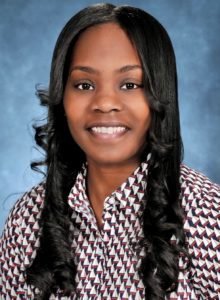On January 1st, Shawana Moore, DNP, MSN, CRNP, WHNP-BC, assumed the role of Chair of the National Association of Nurse Practitioners in Women’s Health (NPWH). She also happens to be the first Black woman to hold the position, which lasts through December 31, 2024.
We interviewed Moore, who is also Assistant Professor/Director of the Women’s Health Gender-Related Nurse Practitioner Program at Thomas Jefferson University College of Nursing, to find out what this means to her and her plans for the future.
What drew you to wanting to take a leadership position like this? When did you first become involved in NPWH?
My desire to impact diverse communities and amplify the voices of historically marginalized women and gender-related populations. I became involved in NPWH as a Program Director in 2014. NPWH provided the opportunity for individuals leading Women’s Health Nurse Practitioner/Women’s Health Gender-Related Nurse Practitioner programs throughout the nation to collaborate and share knowledge.
Being the first Black Chair in the organization’s 41-year history has to mean a great deal to you and other nurses of color. How did this make you feel? What do you think this says to nurses who are BIPOC?
I am honored and humbled to serve as the first African American Chair of NPWH. I hope to pave a pathway for other nurses from the BIPOC community to be elected or appointed to leadership positions within national organizations. This historical milestone within NPWH history displays to other nurse’s from BIPOC populations that they have the opportunity and capabilities to lead in high-level positions within the profession of nursing.
What are you bringing to the organization that past Chair/Presidents who were not BIPOC couldn’t have?
Each Chair/President brings their perspectives, life experiences, and expertise to lead in this position. Those who have come before me have led the organizations to new heights. As I embark on this new role, my uniqueness as a Black woman brings a different viewpoint. I hope to use my perspectives, experiences, and expertise to facilitate and promote clinical practice, policy, community engagement, education, and research with a lens of equity.
What are your biggest challenges in this position? What do you think some of the greatest rewards are?
Being the first at anything comes with the challenge of not being seen or done before in the position. However, it serves as an opportunity to set the stage and create a pathway for others to build upon. The most significant rewards will be the opportunity to amplify historically silenced or unheard communities of women and gender-related populations, collaborate with other national organizations, and lead change within the profession using a lens of equity.
What advice would you give to nurses who are BIPOC about taking leadership roles?
I would advise nurses who are BIPOC to seek leadership roles in all facets of our profession. Their voices, perspectives, expertise, and experiences are valuable to society and can make meaningful and sustainable changes for communities of people.
- What an MSN Can Do for You - October 18, 2023
- The National League for Nursing: Connecting the Academic and Clinical Worlds for 130 Years - August 16, 2023
- Treating Burnout, Trauma, and Grief with Dance - July 14, 2023




